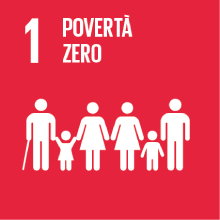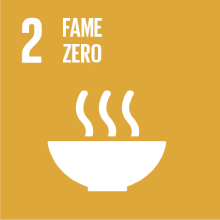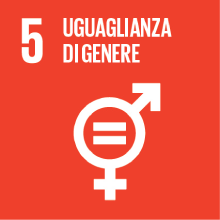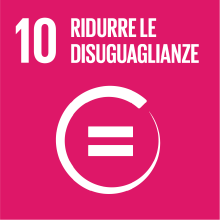THEORETICAL PHILOSOPHY
- Anno accademico
- 2024/2025 Programmi anni precedenti
- Titolo corso in inglese
- THEORETICAL PHILOSOPHY
- Codice insegnamento
- LT9025 (AF:377201 AR:288036)
- Modalità
- In presenza
- Crediti formativi universitari
- 6
- Livello laurea
- Laurea
- Settore scientifico disciplinare
- M-FIL/01
- Periodo
- 3° Periodo
- Anno corso
- 3
- Spazio Moodle
- Link allo spazio del corso
Inquadramento dell'insegnamento nel percorso del corso di studio
Risultati di apprendimento attesi
(1) learn to read a classic text with the necessary historiographic awareness and the necessary critical sense of the multiplicity of meanings;
(2) open up the students' cultural horizon in order for them to learn how not to absolutize the present and not to take dominant interpretations as the only possible ones.
Prerequisiti
Contenuti
The myth of Robinson Crusoe overshadows Defoe's novel -- the literary text is richer and accommodates many nuances and openings. The myth of the closed individual, uniquely self-referential and utilitarian, nothing more than an homo oeconomicus, who has freed himself from the civilized world, tends to falter if compared to the novel, which shows more ambivalences. There are even Robinson's moments of almost tenderness for the other, united even to gratitude. Besides the role of the relationship with God proves decisive. That notwithstanding the course will focus on the relationship of the modern individual with the other, firstly the wild nature and Friday, the native met on the island. The adventures of Robinson Crusoe, as including also a modern economic pattern, constitute a premise not only of the eighteenth and nineteenth century European colonialism, but also, too often, of the contemporary Postcolonialism. The second part of Derrida's "The Beast and the Sovereign" will help us to interpret and understand the myth of Robinson Crusoe and its grounding implications.
Testi di riferimento
John Locke, Two Treatises of Government, 1690 [selected parts, available on Moodle]
Jean-Jacques Rousseau, Emile, only Book 3, § 8, in The Works of Jean-Jacques Rousseau: The Social Contract, Confessions, Emile, and Other Essays, Halcyon Press Ltd., 2009;
Jean-Jacques Rousseau, The Social Contract, Book I, chap. 2;
Jean-Jacques Rousseau, Discourse on the Origin and Basis of Inequality Among Men, Hackett Publishing Company, 1992 (selected parts);
Karl Marx, Foundations of the Critique of Political Economy, Introduction, 1a, pp. 17-21;
Michel Tournier, Friday [1967], The Johns Hopkins University Press, 1997 (selected parts);
Tzvetan Todorov, The Conquest of America. The Question of the Other [1982], Oxford UP, 1999 (selected parts).
Vanita P. Tadha, Comparison between Caliban and Friday, in The Postcolonial Literature, 30(3), 2015;
Karl Marx, Foundations of the Critique of Political Economy, only Introduction, 1a;
Jacques Derrida, The Beast and the Sovereign, vol. 2 (2002-2003), translated by G. Bennington, University of Chicago Press, Chicago 2011 (available on the web).
More (non-mandatory) references:
Thoreau, Henry David, “Solitude”, in Id., Walden and Civil Disobedience, Penguin Classics, New York 1986, pp. 174-184;
Emerson, Ralph Waldo, “Nature”, in Id., Nature and Selected Essays, Penguin Classics, 2003;
Baumeister, David, The Human/Animal Logic of Sovereignty: Derrida and ‘Robinson Crusoe’, Environmental Philosophy: The Journal of the International Association for Environmental Philosophy, 16(1), 2019, pp. 161-180;
Bobaru, Nicolae, The Footprint Motif In Rewritings of the Crusoe’s Modern Myth in «Journal of Romanian Literary Studies», 22, 2020, pp. 416-421;
Brugnolo, Stefano, La tentazione dell’altro. Avventure dell’identità occidentale da Conrad a Coetzee, Carocci editore, Roma 2017, solo 2, 2.1, 2.2 pp. 27-54; 6.13, pp. 205-209;
Hill, Christopher, Robinson Crusoe, in «History Workshop», No. 10, 1980, pp. 6-24;
Muthu, Sankar, Enlightment Against Empire, Princeton UP, 2003, only Chapter Three: “Diderot and the Evils of Empire: The Histoire des deux Indes”, pp. 72-121;
Watson, Matthew, Crusoe, Friday and the Raced Market Frame of Orthodox Economics Textbooks,in NEW POLITICAL ECONOMY, 23, 5, 2018, pp. 544–559.
Modalità di verifica dell'apprendimento
Students are advised to remember the following:
when you are already registered for an exam session and, for any reason, you cannot take the exam, you must notify the teacher in advance via email.
Regarding the grading, the exam will be marked on a scale ranging from 0 to 30. The minimum passing grade is 18. Honors ("lode") will be granted only for exceptional capacity of judgment and excellent knowledge of the topics under evaluation.
Modalità di esame
Metodi didattici
Lingua di insegnamento
Altre informazioni
Ca' Foscari abides by Italian Law (Law 17/1999; Law 170/2010) regarding support services and accommodation available to students with disabilities. This includes students with mobility, visual, hearing and other disabilities (Law 17/1999), and specific learning impairments (Law 170/2010). If you have a disability or impairment that requires accommodations (i.e., alternate testing, readers, note takers or interpreters) please contact the Disability and Accessibility Offices in Student Services: disabilita@unive.it.
Obiettivi Agenda 2030 per lo sviluppo sostenibile
Questo insegnamento tratta argomenti connessi alla macroarea "Povertà e disuguaglianze" e concorre alla realizzazione dei relativi obiettivi ONU dell'Agenda 2030 per lo Sviluppo Sostenibile




